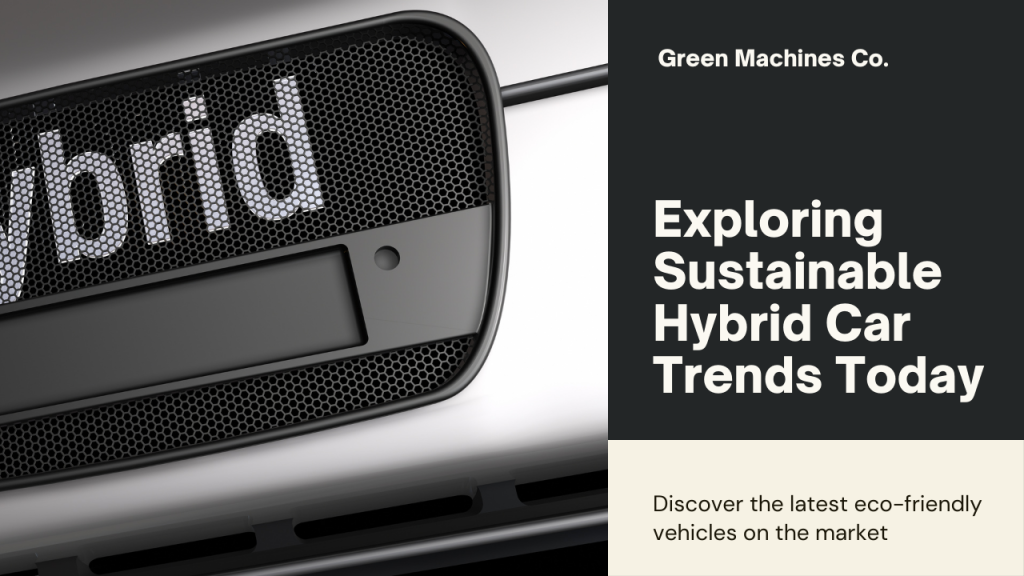
Hybrid cars represent a significant step towards reducing emissions and promoting sustainability in the automotive industry. This article will explore the latest trends and innovations in hybrid technology, highlighting how manufacturers are blending efficiency with performance.
Advanced Hybrid Powertrains
Hybrid vehicles combine traditional internal combustion engines with electric motors to optimize fuel efficiency and reduce emissions. Manufacturers like Toyota, Honda, and Hyundai continue to refine their hybrid powertrains, incorporating technologies such as regenerative braking, electric assist, and intelligent hybrid management systems. These advancements not only enhance fuel economy but also provide seamless transitions between electric and gasoline power for a smooth driving experience.
Plug-in Hybrid Options
Plug-in hybrid electric vehicles (PHEVs) offer extended electric-only driving range by allowing drivers to charge the battery from an external power source. Models such as the Toyota Prius Prime and Hyundai Ioniq Plug-in Hybrid exemplify this trend, offering versatility for daily commuting while maintaining the ability to switch to gasoline power for longer trips. The availability of public charging infrastructure further supports the adoption of PHEVs by providing convenient charging options in urban and suburban areas.
Eco-Friendly Materials and Design
In addition to improving powertrain efficiency, hybrid car manufacturers are incorporating eco-friendly materials and sustainable design practices into their vehicles. Recycled plastics, natural fibers, and bio-based materials are being used in interior components and exterior panels to reduce environmental impact during production and throughout the vehicle’s lifecycle. Brands like Ford and Toyota are leading efforts to minimize the carbon footprint of hybrid cars while maintaining high standards of comfort and durability.
Consumer Incentives and Government Policies
Government incentives and policies play a crucial role in promoting hybrid vehicle adoption. Tax credits, rebates, and access to HOV lanes incentivize consumers to choose hybrids over traditional gasoline-powered vehicles. Countries like Norway and the Netherlands offer substantial subsidies for electric and hybrid vehicles, contributing to their popularity and market penetration. These incentives not only benefit consumers financially but also support global efforts to reduce greenhouse gas emissions and combat climate change.
Hybrid cars continue to evolve as viable alternatives to conventional gasoline vehicles, offering a balance of efficiency, performance, and environmental sustainability. With advancements in hybrid powertrains, plug-in hybrid options, eco-friendly materials, and supportive government policies, hybrids are becoming increasingly attractive to environmentally conscious consumers. As technology advances and awareness of environmental issues grows, the future of hybrid vehicles looks promising, paving the way towards a greener and more sustainable automotive industry.

